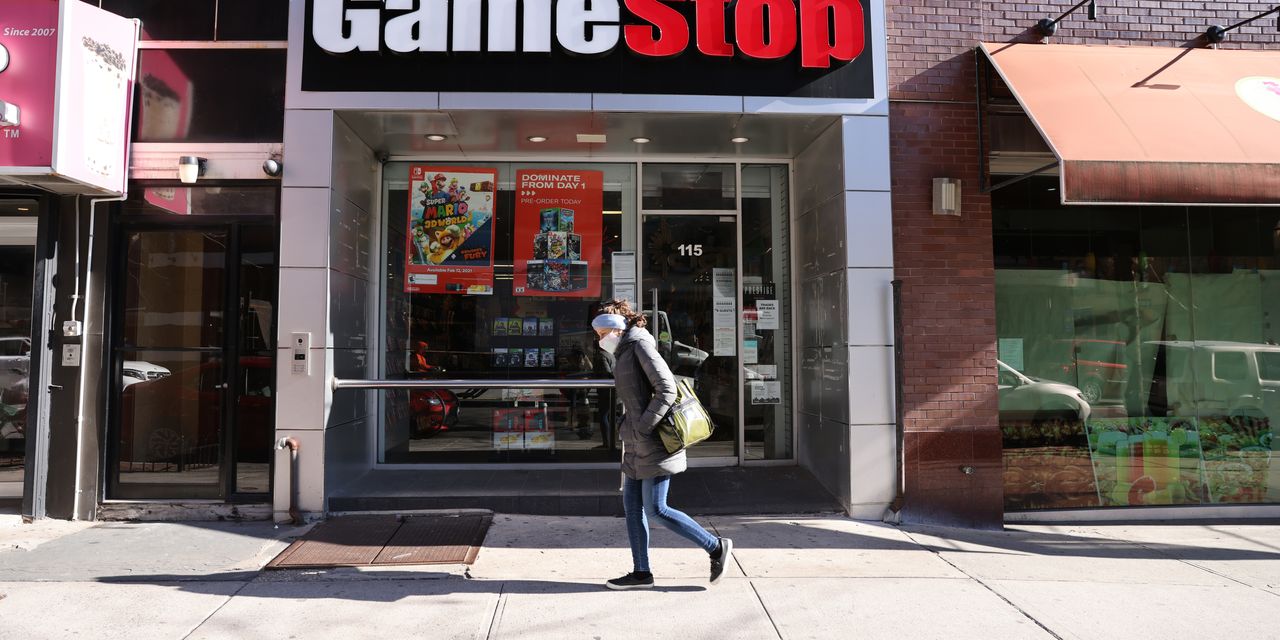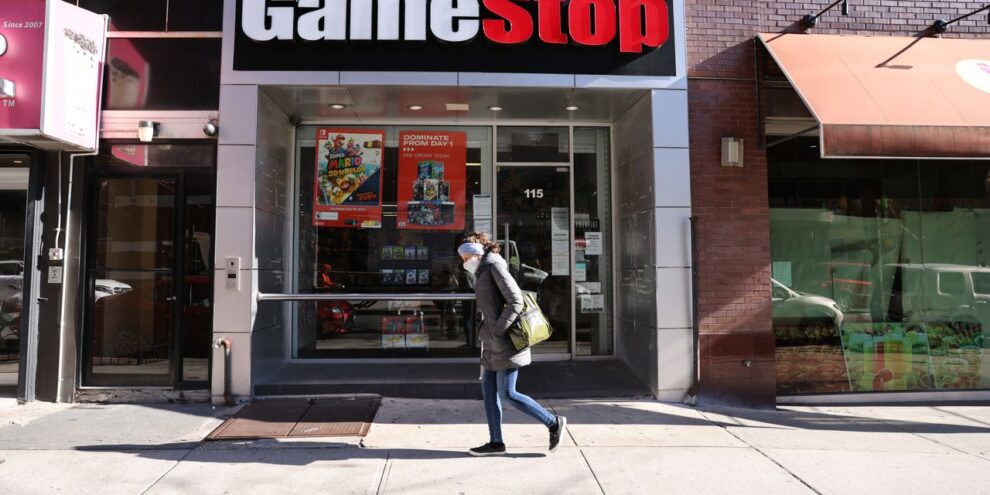
YOLO? Maybe not quite so.
During the GameStop trading frenzy, some observers worried many rookie retail investors banding together on sites like Reddit’s WallStreetBets would bet big — a so-called “YOLO trade” in the forum’s slang — and end up losing badly.
No doubt, this was a serious event that rocked the stock market, bringing it “dangerously close” to collapse, according to Thomas Peterffy, founder and chairman of Interactive Brokers Group.
But at a closely-watched congressional hearing Thursday on the rise and fall of GameStop shares and other so-called “meme stocks,” statements by one of the key players in the trading firestorm revealed that young investors generally aren’t betting big to reap quick gains.
“Contrary to some very misleading and highly uninformed reports, we see evidence that most of our customers are investing for the long term,” said Vlad Tenev, CEO of Robinhood, the popular trading platform that caught massive ire for temporarily restricting trades on GameStop GME, -0.25%, AMC Entertainment AMC, +3.45% and several other companies. As the hearing continued, he repeated that point under lawmaker questions.
“What we see is generally not consistent with popular memes suggesting that most of our brokerage customers are unsophisticated day traders taking inordinate risks with large sums of money on complex financial products,” Tenev wrote in prepared testimony submitted ahead of the hearing, pushing back on the idea that his company encouraged reckless trading on a platform with 13 million users.
Just 2% of Robinhood users qualified as “pattern day traders” who made four or more trades within five business days, he said. Thirteen percent traded basic options contracts, which can be higher risk, higher reward than straight-ahead buying or selling.
In the face of some pointed questions, he also insisted Robinhood isn’t trying to turn the user experience into a game. “We know investing is serious and that’s why most of our customers are buy and hold,” he said.
(Before the GameStop saga, Massachusetts state regulators filed a complaint against Robinhood for allegedly making trading seem too fun until loses occur. The company previously said it disputes the allegation.)
Tenev and lawmakers have sparred on what Robinhood should and shouldn’t have done during the GameStop saga. GameStop shares once traded at a high point of $483. By Thursday’s market close, GameStop shares were $40.69.
But either way, Tenev’s testimony gave an interesting peek at who the newest retail investors are and how much money they are pouring into the market. After all, retail investors were already increasingly entering the stock market before the GameStop drama started.
Fifty-five percent of Americans directly own stock, according to a Gallup survey last year, while 32% of 18- to 29-year-olds said they owned stock.
The median age of Robinhood investors is 31 and half of users say they are first-time investors. The median account size is about $240, according to Tenev’s statement, and the average account size is about $5,000.
The fact that 13% of Robinhood users are trading options gives some advocates pause. Barbara Roper, director of investor protection at the Consumer Federation of America, said that “strikes us as a pretty high percentage when you consider the characteristics of Robinhood’s customer base (disproportionately young, first-time investors with small accounts).”
Robinhood investors also tend to be a slightly more racially diverse crowd, according to Tenev’s testimony. Nine percent of users are Black, compared to 3% at other firms and 16% are Hispanic, versus 7% at other firms, according to Tenev’s statement.
“Retail investors making up this new surge are different,” testified Jennifer Schulp, the Cato Institute’s director of financial regulation studies.
Retail investors are nicknamed as “dumb money” on Wall Street, Schulp said. “I think it’s insulting. I think the term needs to go out the window. I think the GameStop situation is proof the retail investors are revolutionizing the market …. I think the retail investors here are learning by doing, which is one of the best ways to learn.”
She pointed to research from the FINRA Investor Education Foundation released earlier this month digging into the demographics and account balances of new retail investors.
One-third of new investors who opened a taxable investment account for the first time in 2020 said they had account balances of less than $500, versus 16% of experienced investors. Twenty-three percent of new investors had account balances up to $2,000. Twenty percent of experienced investors had account balances up to $2,000.
The survey found a more racially diverse set of new investors, with 17% of new investors being Black. Seven percent of experienced investors are Black, the poll said.
As the hearing continued, some lawmakers questioned whether more guardrails need to be in place, while others said lawmakers shouldn’t condescend to retail investors and assume they know best.
“Many Americans feel that the system is stacked against them and no matter what, Wall Street always wins,” said Rep. Maxine Waters, who chairs the House Financial Services Committee. “In this instance, many retail investors appeared motivated by a desire to beat Wall Street at its own game and given the losses that many retail investors have sustained as a result of volatility in the system, there are many whose beliefs that the system is rigged against them has been reinforced.”
The GameStop saga was a “fundamental change,” said Rep. Patrick McHenry, the ranking Republican on the committee. The swell in trading was propelled by social media and a wealth of new information at investors’ fingertips.
“I think if we’ve learned anything from these past few weeks, it’s that these average everyday investors are pretty darn sophisticated,” McHenry said. “There is wisdom to the crowd.”
The government needs to make it easier for everyday investors to buy into the market, he said. “Instead of shutting the American public out through new regulations, new forms of taxation or so-called protections, let’s use this opprotunity to side with them.”
One of the witnesses was Keith Gill, a 34-year-old independent investor with online handles like “Roaring Kitty” who turned his GameStop investment into millions. He made all his investment decisions based on publicly-availabile information, he told Congress.
“I would be the first to acknowledge that investing in stocks and options is incredibly risky, and it’s so important for people to do their own thorough research before investing,” Gill said. “Folks should be able to freely express their views on a stock, and they should be able to buy or not buy a stock based on those views.”
GameStop shares are up nearly 116% year-to-date. The Dow Jones Industrial Average DJIA, +0.00% is up nearly 3% and the S&P 500 SPX, -0.19% is up more than 4% in 2021.











Add Comment